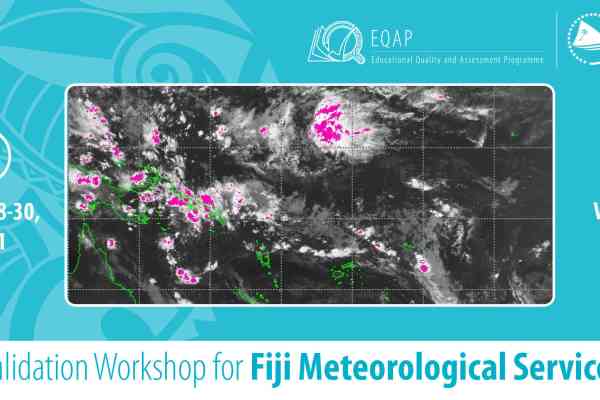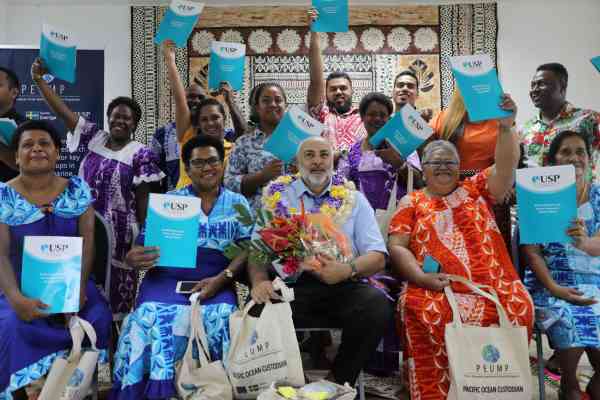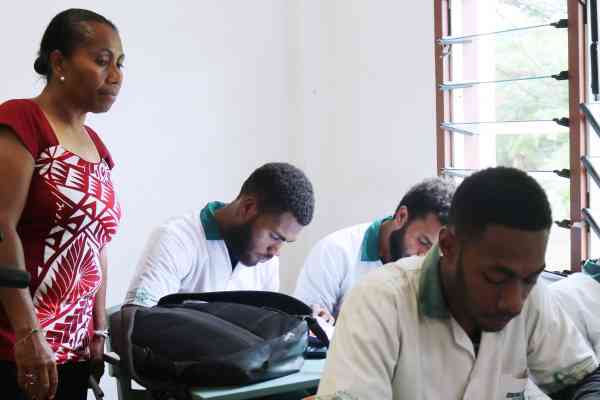(Contenu disponible en anglais uniquement)
Three micro-qualifications developed for the region’s sports administrators, coaches and trainers have been endorsed by the Pacific’s key sports stakeholders and will soon be processed for accreditation by the Pacific Community (SPC).
These are the first three of 14 short courses that the Oceania National Olympic Committees’ (ONOC) flagship education programme, Olympic Sports Education Programme (OSEP), is working to realign for accreditation. SPC is helping OSEP with the realignment, as part of a four-year partnership signed in 2021.
At the regional stakeholders hybrid meeting earlier this month, ONOC President Dr Robin Mitchell said it was good to receive the positive feedback on the three courses. The repackaged courses are the micro-qualifications on: ‘Enhance Governance Practice in Sports Organisation,’ ‘Enhance Athletic Performance through Strength and Conditioning Coaching,’ and ‘Demonstrate Sports Coaching Systems in accordance with Athlete Development Pathways.’
Stakeholders, who were organised into groups representative of coaches, sports administrators, and sports educators, had to evaluate the scope, depth, relevance, and currency of the micro-qualifications. Industry endorsement of a micro-qualification is mandatory before it can be submitted for accreditation, which confirms that each of the micro-qualifications addresses a need by the industry. The endorsement document is essential evidence for accreditation.
Rajendra Prasad, who is SPC’s qualifications lead, said this endorsement completes the development phase towards accreditation. The next phase will be set in motion once ONOC files the formal application for accreditation with the supportive course documents.
“While we await their formal application, we are working on securing independent evaluators from the industry who will review the application and make their recommendation to the final review committee,” said Prasad.
The committee’s report and recommendation, and a report from EQAP’s Qualifications team, will be presented to the accreditation board for its decision. The board, which is a sub-committee of SPC’s governing board, includes the education heads of 15 Pacific Island countries.
Dr Mitchell said the micro-qualifications pathway better served the region’s sporting community, rather than the traditional route.
“When Rajendra first introduced the programme, he said this is a programme for Pacific Islanders, run by Pacific Islanders. This fits in with our theme of looking forward to preparations for the Olympic Games in Brisbane in 2032,” he said.
“Our main focus in all of this is how best we can serve the athlete and his/her entourage, which is the coaches, the managers and the medical support group.”
ONOC Athletes’ Commission chair Karo Lelai, who was among the stakeholders contributing to the review, said the micro-qualifications approach was good because these were tailored to the Pacific context.
“Whilst there is a lot of literature and other training courses that already exist, they are not necessarily customised to suit the environment in the Pacific where we don’t necessarily have all of the resources, infrastructure, or services that one would have in a developed country,” said Lelai, who was referencing the strength and conditioning micro-qualification as an example.
“So, what we have been doing here ... is definitely very valuable and it will help us to address that vacuum that we have in terms of sports knowledge centred on trainers (strength and conditioning), developed by Pacific people for the Pacific.”
Lelai said the compact and well-designed packaging of the learning content was a strong feature that made micro-qualifications more accessible, particularly as the region’s sporting community largely comprised of volunteers.
“Most have resource constraints, including time constraints, so giving them bite-sized packages that is within their means to access, is important if we want to change the sporting landscape around the Pacific,” she shared. “So, I was quite excited about the accessibility of the products (micro-qualifications) that we are helping to develop.”
The sports micro-qualifications adopt the competency-based learning approach. This means learners must prove mastery in the listed competencies or skills to attain the micro-qualification.
“All (the micro-qualifications) have practical components and the learners would have to ensure that they meet all of the criteria listed in the checklist,” said Prasad. “For instance (in the coaching micro-qualification), if there are 10 items in the checklist, you must ensure you get a tick against each of them.”
The 14 micro-qualifications being developed are in the areas of sports management, coaching, and strength and conditioning. ONOC is working toward having all 14 accredited within the next 18 months.
Author: Irene Manarae, Communications Assistant, [email protected]


